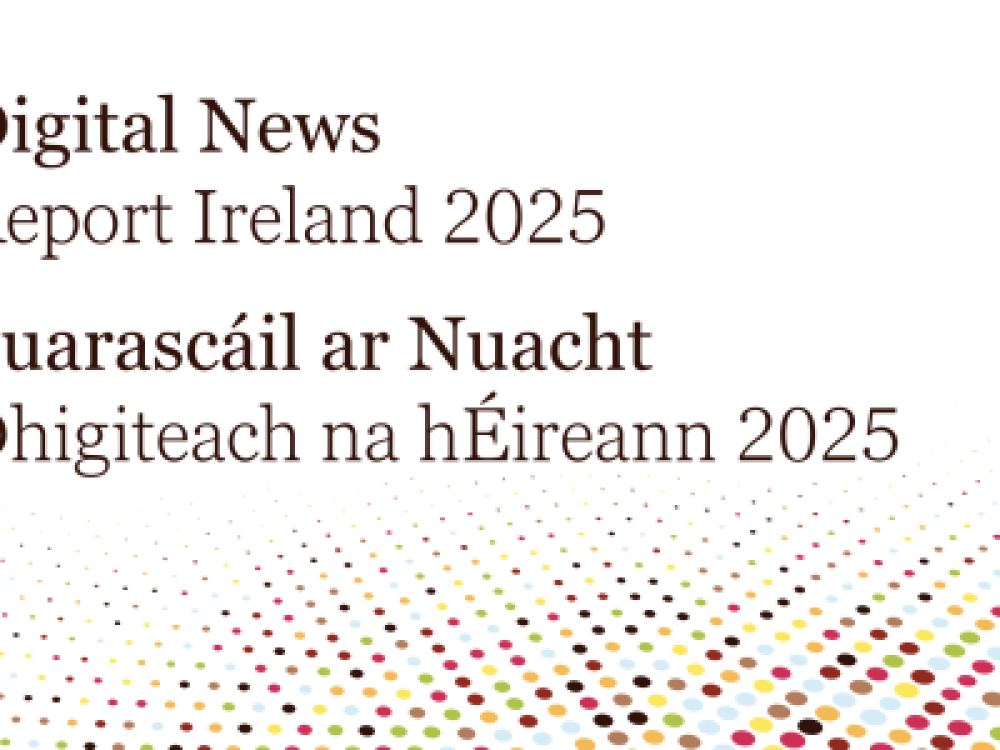Writing for TheJournal.ie, FuJo director Dr Jane Suiter examines the findings on trust from the Reuters Digital News Report 2017.
THE NEWS MEDIA has been facing a tumultuous time, but there are some chinks of light emerging. Perhaps itâs a Trump Bump but news consumers across Europe and in Ireland are beginning to trust the media more and in particular the media they consume.
At the same time, the gap is widening between trust in the news media and social media. Some 72% of Irish news consumers trust most of the news they receive most of the time and 70% say the news industry does a good job helping them distinguish fact from fiction, according to the latest Reutersâ Digital News Report for Ireland.
There is some evidence over the past few years that the rise of social media has led to increased distrust of news media. The possible reasons for this are myriad but include the speed of dissemination of false news, the filter bubbles which social media can engender, and the algorithmic triggering of negative emotions.
Facebook: Given the ubiquity of Facebook as a purveyor of news this should encourage the social media giant to do more in terms of helping with fact checking, penalising fake news purveyors and tweaking algorithms to ensure users see a wider range of stories. We also know that the plurality of people do not understand the nature of algorithms and personalisation and indeed there are even questions as to whether Facebook does. But it also provides an opportunity for quality media to demonstrate their unique value and is a welcome platform to build from.
Todayâs report found that globally only a quarter of global survey respondents think social media do a good job in separating fact from fiction, half the level who believe the news media do so. In Ireland and in countries like the US, and the UK people are twice as likely to have faith in the news media. Only in Greece do more people think social media is doing a better job, primarily because they have very low confidence in news media.
Brexit and Trump have had a big impact. Trust has fallen seven percentage points in the UK since the Brexit referendum. There are now valid questions around media practices of simply providing a platform of âhe said/she saidâ to news consumers. More critical engagement and analysis is no doubt required.
Encouraging Signs: But there are also encouraging signs. The New York Times added some 308,000 (net) new digital subscribers in the first three months of 2017, a record gain that has been partly attributed to the Trump presidency. The same is true of The Economist and The Washington Post among others.
In some countries, the report finds a strong link between low trust and perceived political bias and to a lesser extent commercial bias. In the US those on the political right are almost three times as likely to express distrust in news organisations that they see as being part of the âliberal mainstream mediaâ oft touted by Trump. They are also much more likely to trust sources they use themselves, such as Fox News.
In Ireland these are not significant factors for most people and more Irish news consumers believe Irish news is free of undue commercial and political influence than the international average but people do still tend to trust their own sources rather than those they do not use.
Trust in media? To unpack some of this we added some open-ended questions on why people do or do not trust media and crucially do and do not trust social media. Very encouragingly for Irish news media, three times as many respondents give reasons for trusting the news media as for distrusting it. And most people trust either because they believe in the professional standards, such as verification and sourcing and so on, or they simply believe the news media is generally unbiased.
The kind of responses we see are that âthey have reliable sourcesâ, âthey back up what they say with evidenceâ, âthey call out fake newsâ and so on. In terms of peopleâs reasons for not trusting the news the largest category was a belief that journalists were unwilling to reveal the news with typical comments that âthere is a lot of scaremongeringâ, or âthey reveal one sideâ or âthey tend to dramatise everythingâ.
Interestingly, when we turn to the reason why people trust or do not trust social media we see that the pattern is reversed. Here we can see that 68% of people give reasons as to why they distrust social media while 32% give reasons to trust. Turning first to those who trust social media, the major reason is the belief that the news here is unfiltered and comes from ordinary people including their friends. However, this only accounts of 11% of those who give a reason for trusting or distrusting social media. Very few believe in either crowd sourcing and even fewer in the access it gives to multiple professional sources.
What this all points to is a possible realisation on the part of news media consumers that there is a difference between quality news and algorithmically generated serendipitous news on social media. If that can be built upon more widely that would be a chink of light for the beleaguered industry.
Subscribe to FuJo's newsletter




